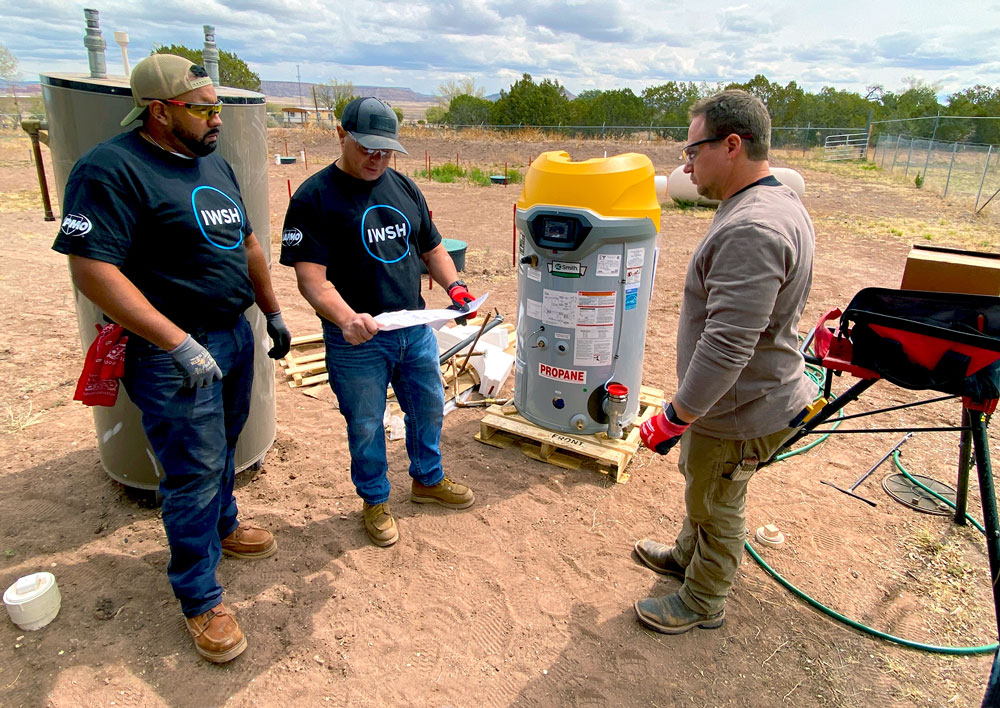
COMMUNITY PLUMBING CHALLENGE BRINGS KITCHEN UPGRADES TO SENIOR CENTER, HOT WATER TO CHAPTER HOUSE
The International Water, Sanitation and Hygiene Foundation (IWSH) recently returned to the Baca-Prewitt Chapter of the Navajo Nation to continue its ongoing plumbing infrastructure project first begun in 2018. Working again in partnership with DigDeep and volunteers from United Association Locals 412, 290, 68, 342, and 400, IWSH led a two-week Community Plumbing Challenge from April 26-May 10 on the New Mexico side of the reservation. The initiative brought new water-efficient plumbing upgrades to two key community facilities — the Baca-Prewitt Senior Center and the Chapter House.
In the first week, from April 27-May 2, attention was focused on the senior center, where teams installed water-efficient fixtures and appliances designed to support food preparation and services for elders. In the second week, from May 4-9, the focus shifted to the Chapter House, a building that had gone without a functioning water heater for more than five years. There, teams installed a new, efficient water heater and added a public drinking fountain and bottle refill station to give community members safe, reliable access to potable water.
For Cindy Howe, director of the DigDeep Navajo Water Project, the urgency behind these upgrades cannot be overstated.
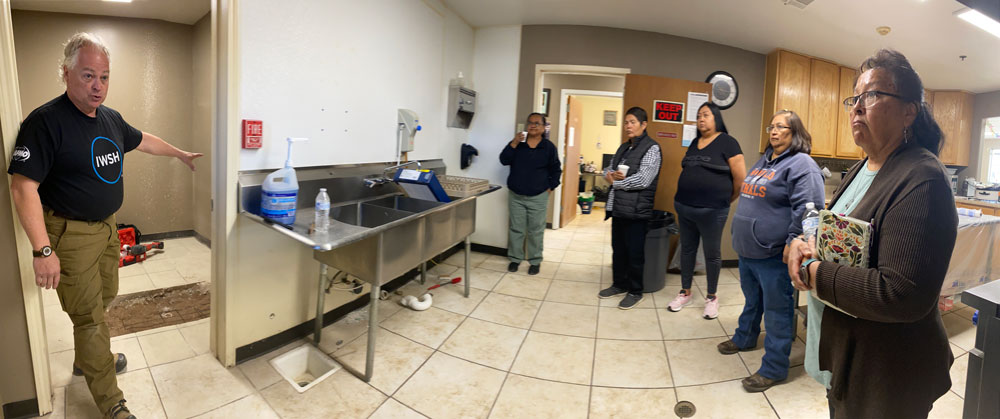
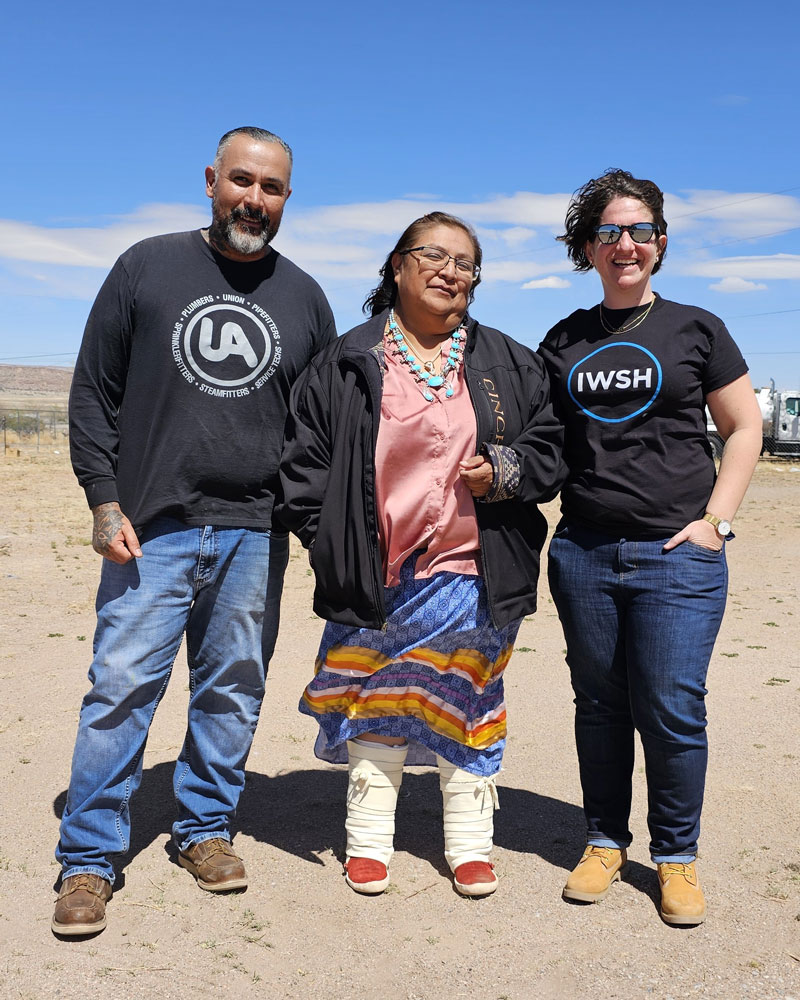
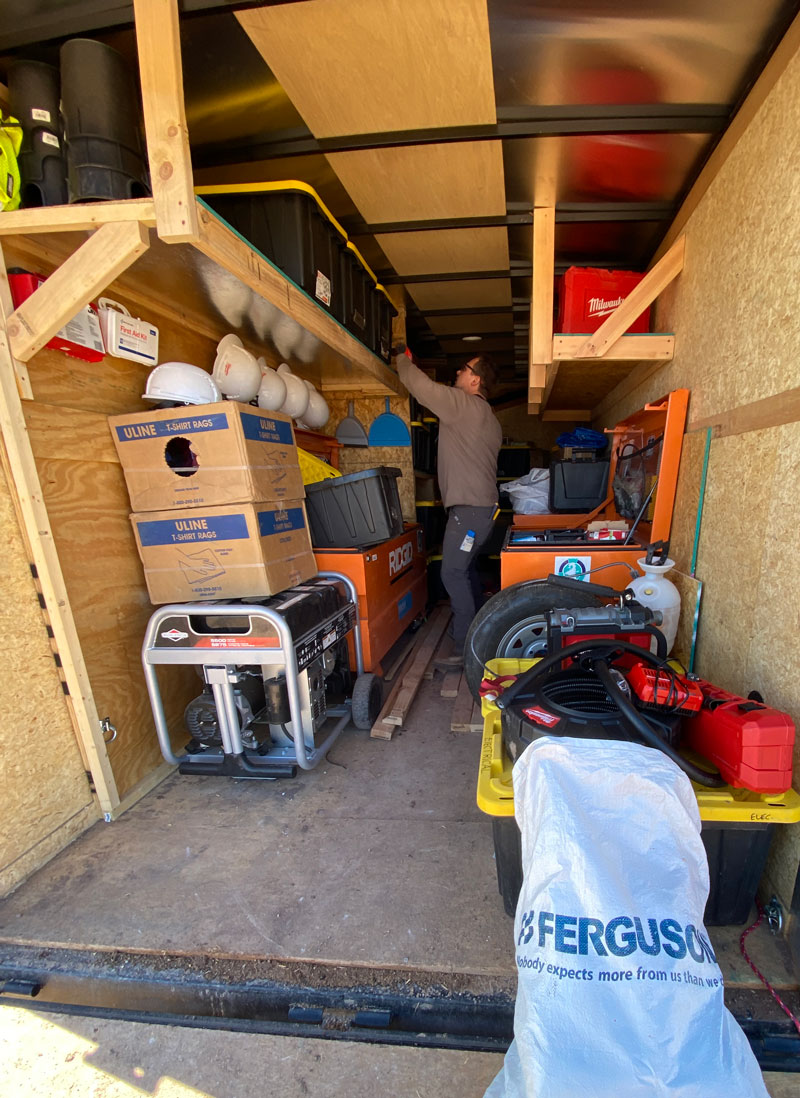
Right: Parts and supplies warehoused in IWSH trailer. | PHOTOS COURTESY OF JED SCHEUERMANN AND IWSH
“We don’t have the proper sanitation,” she said. “A lot of people continue to use outhouses, and a lot of people don’t have the means to actually purchase a new water heater. That could be the only reason why water is now shut off.”
Senior centers serve a vital role for their chapter residents and the lack of functional plumbing infrastructure leaves the community unable to tend to the needs of its most vulnerable.
“I’ve seen senior centers that are just run down, their plumbing is horrible, and they want help from the chapter house, from our program, but nothing happens,” said Cassandra Calladitto, senior center supervisor, Baca-Prewitt Chapter. “So, a lot of senior centers are being shut down. [IWSH is] really, really, really helping the elderly. That’s who [IWSH is] going to be helping the most.”
That stark reality underscores the broaderinfrastructure challenges throughout the Navajo Nation. Jed Scheuermann, IWSH program director for North America, explained that the region’s geography presents serious obstacles.
“Plumbing infrastructure is limited in Navajo Nation for the lack of resources,” he said. “There is virtually no municipal piped water or piped sanitation. The topography, the ground sources and all that are very different here.”
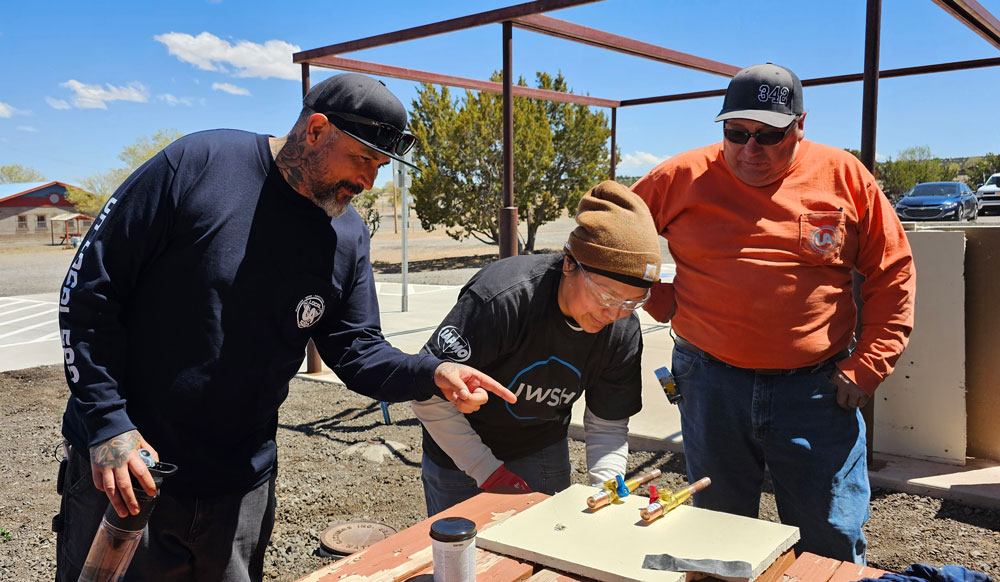
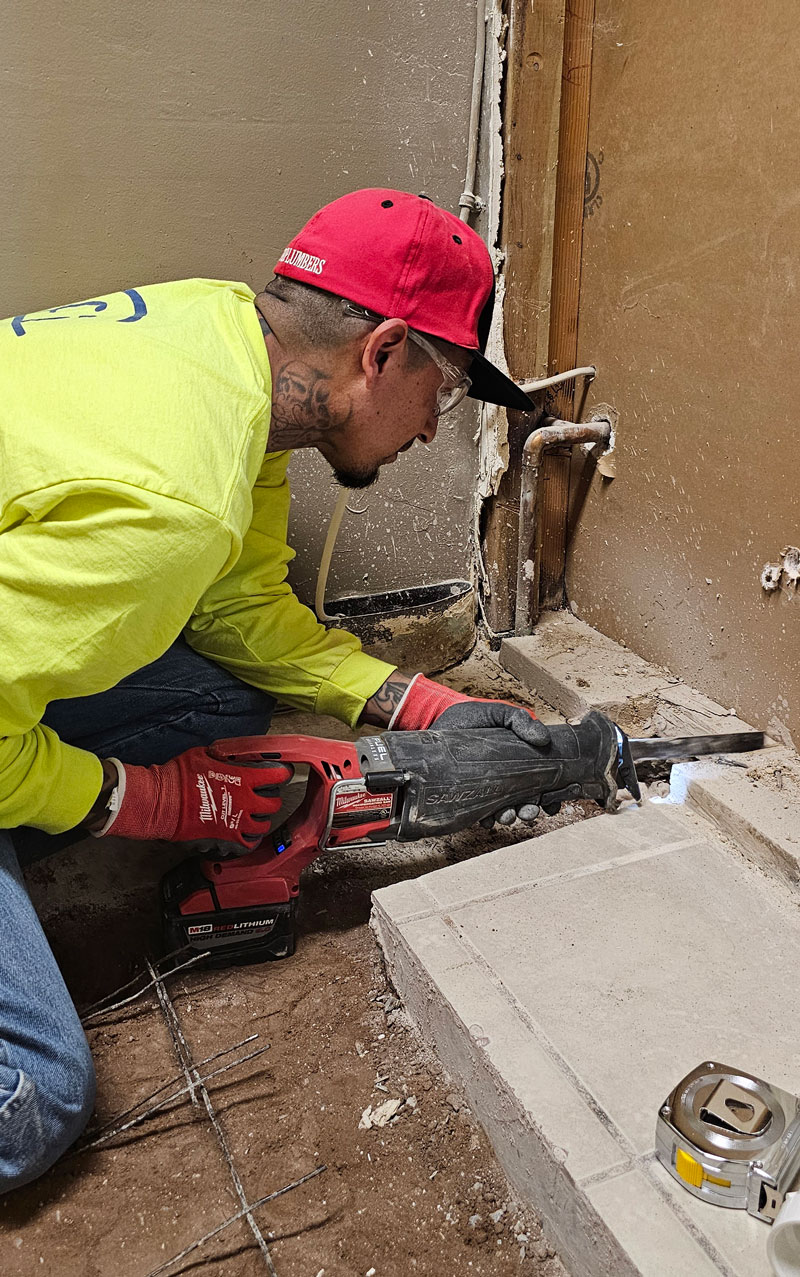
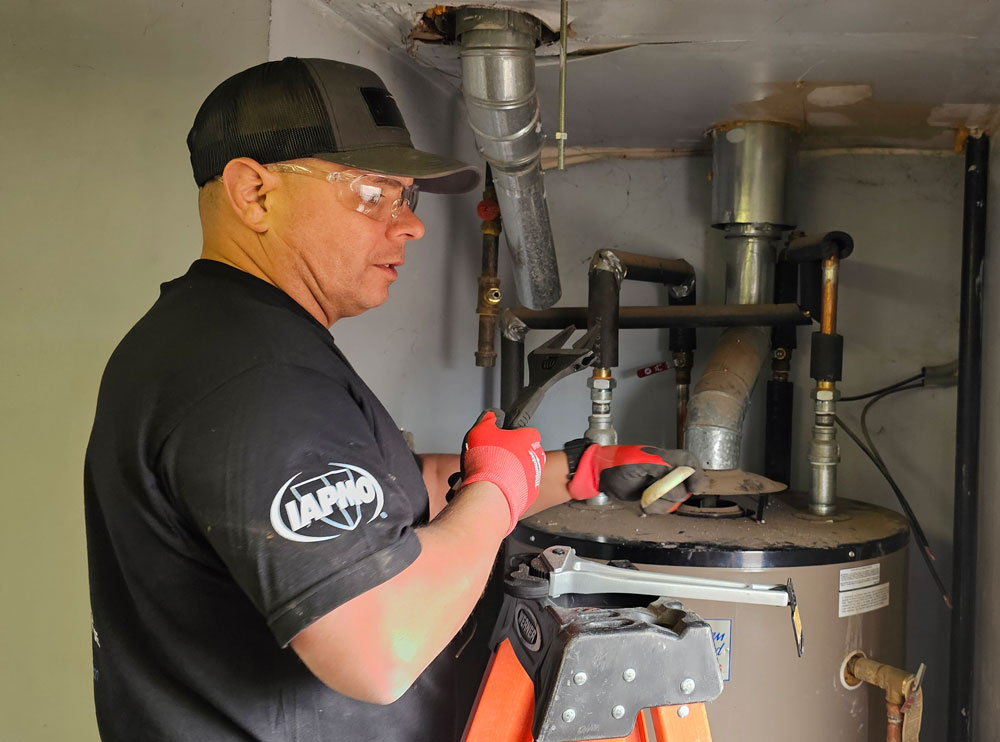
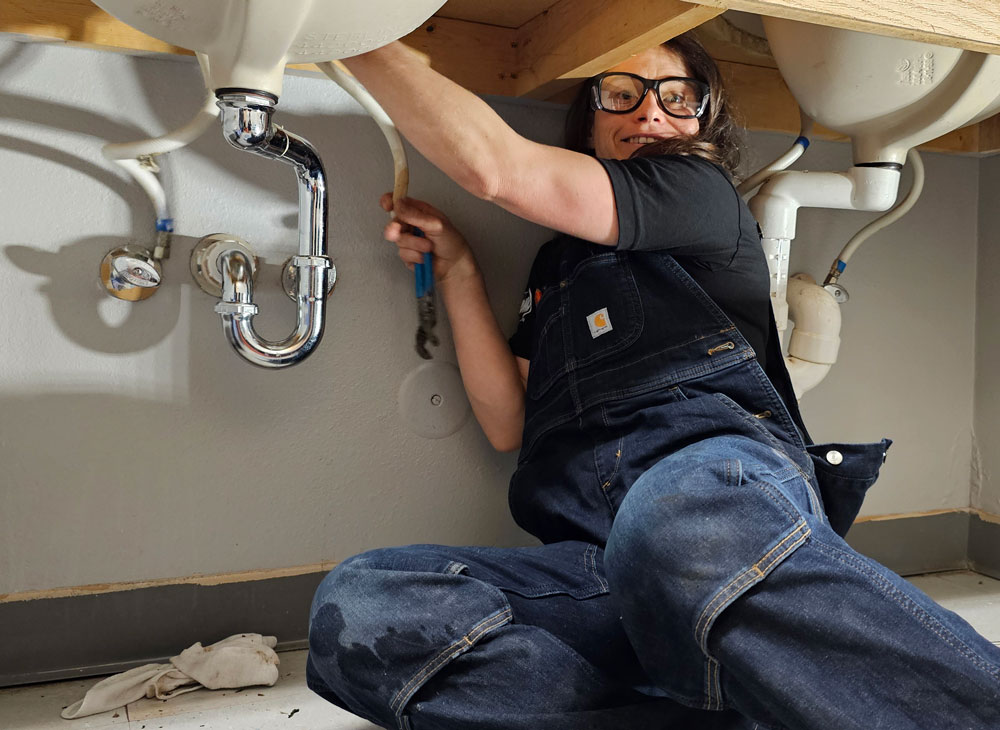
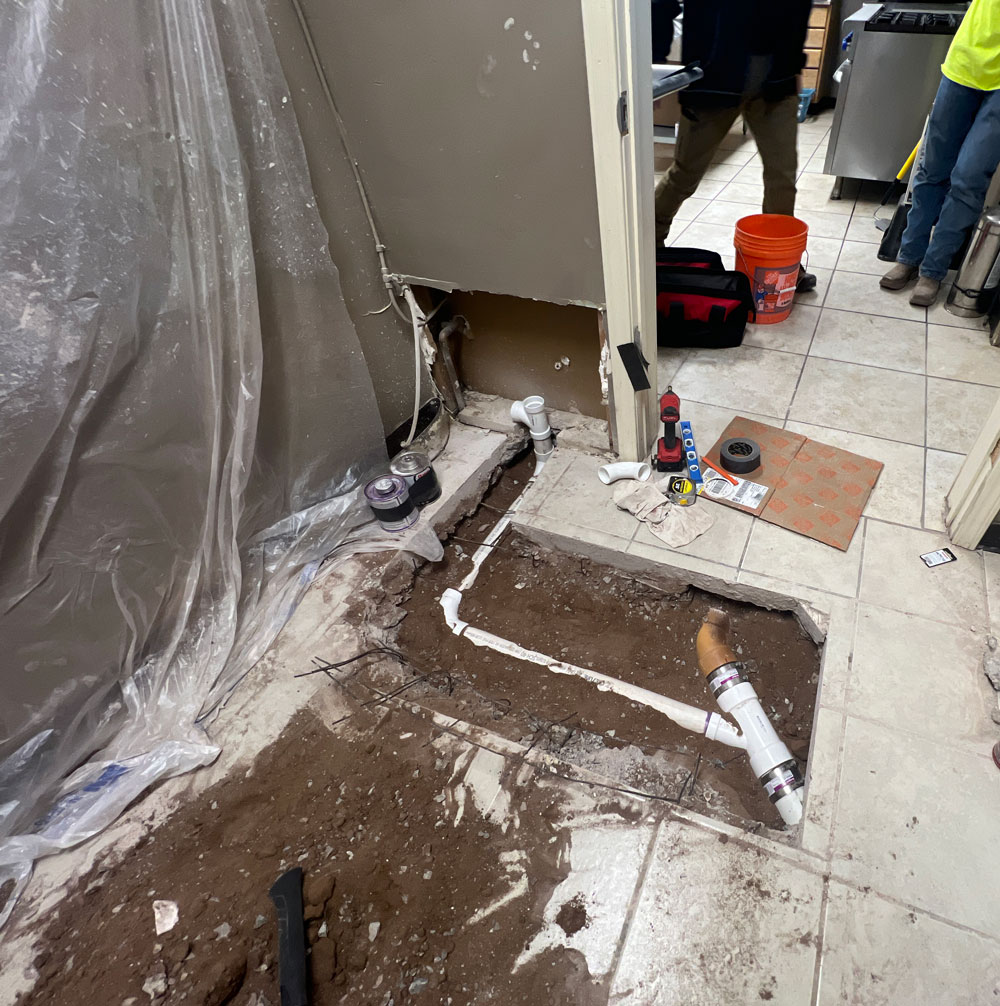
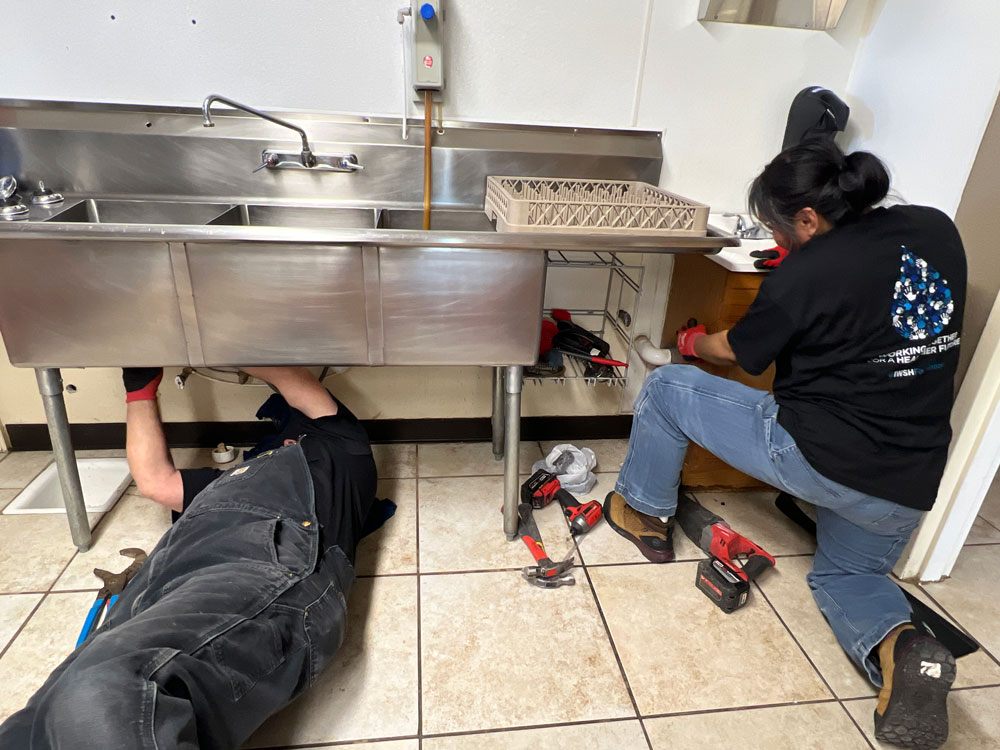
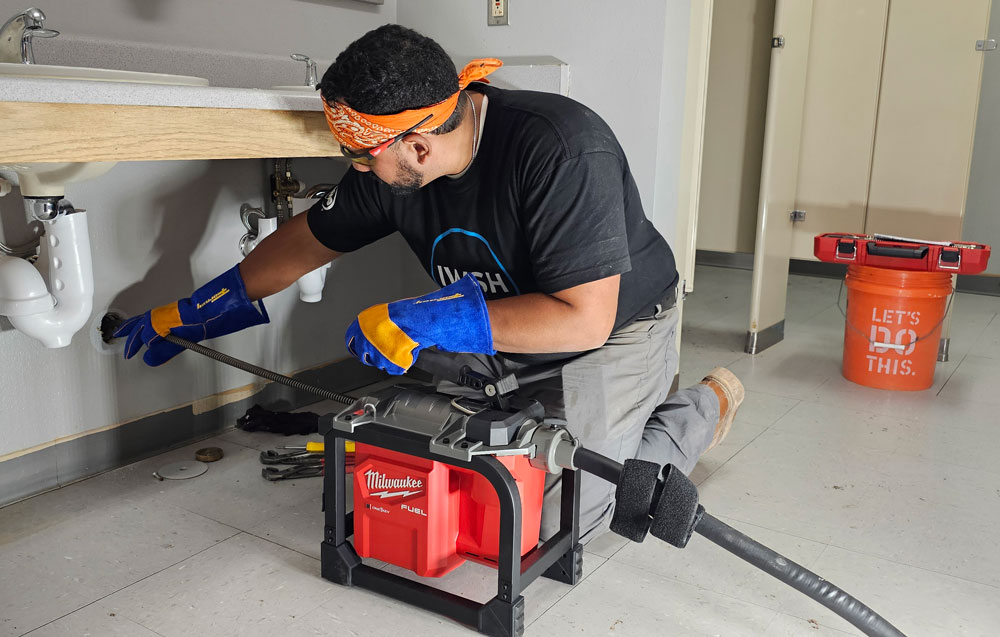
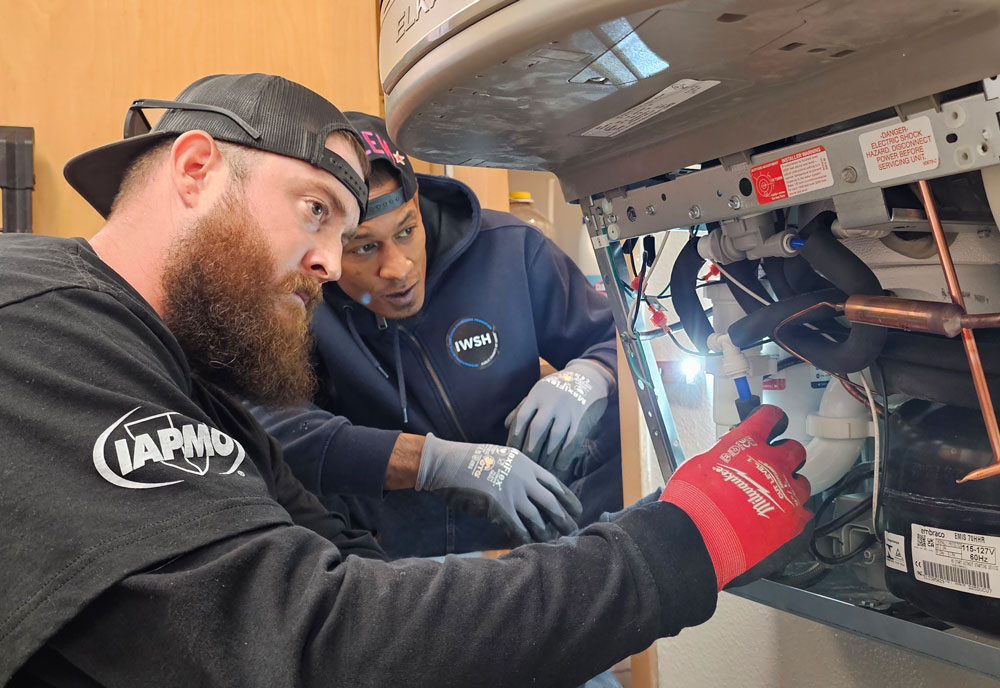
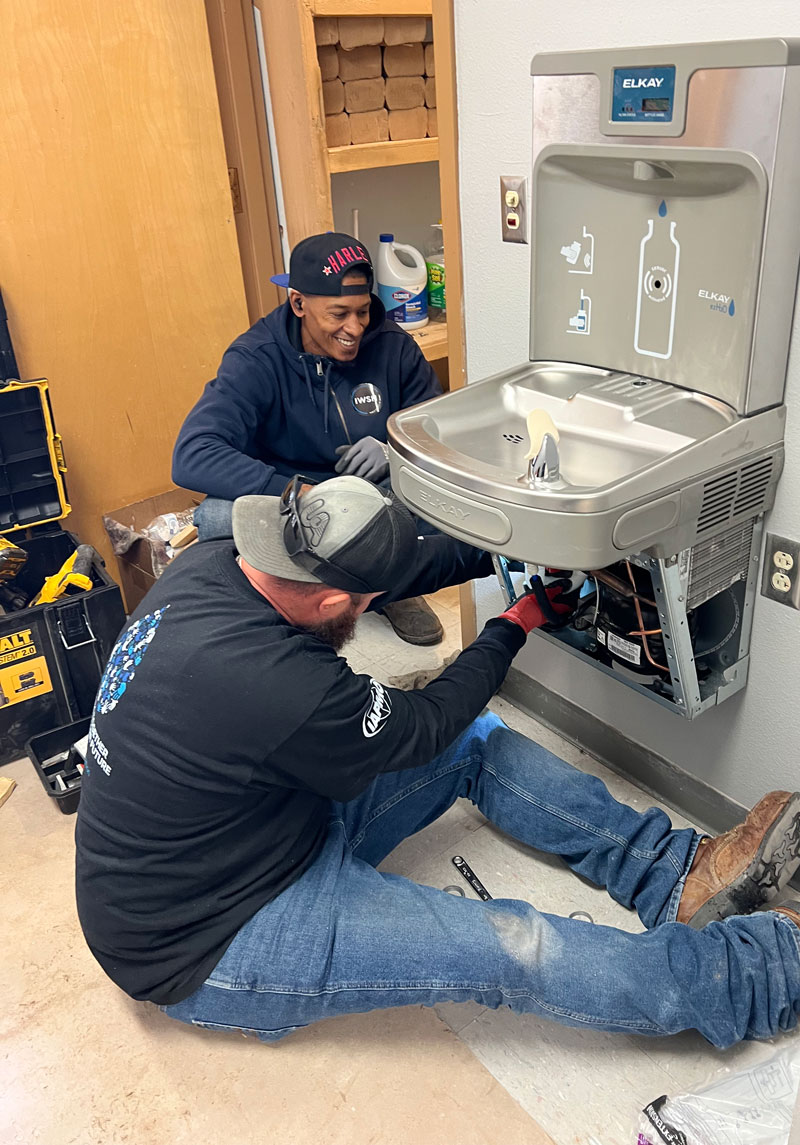
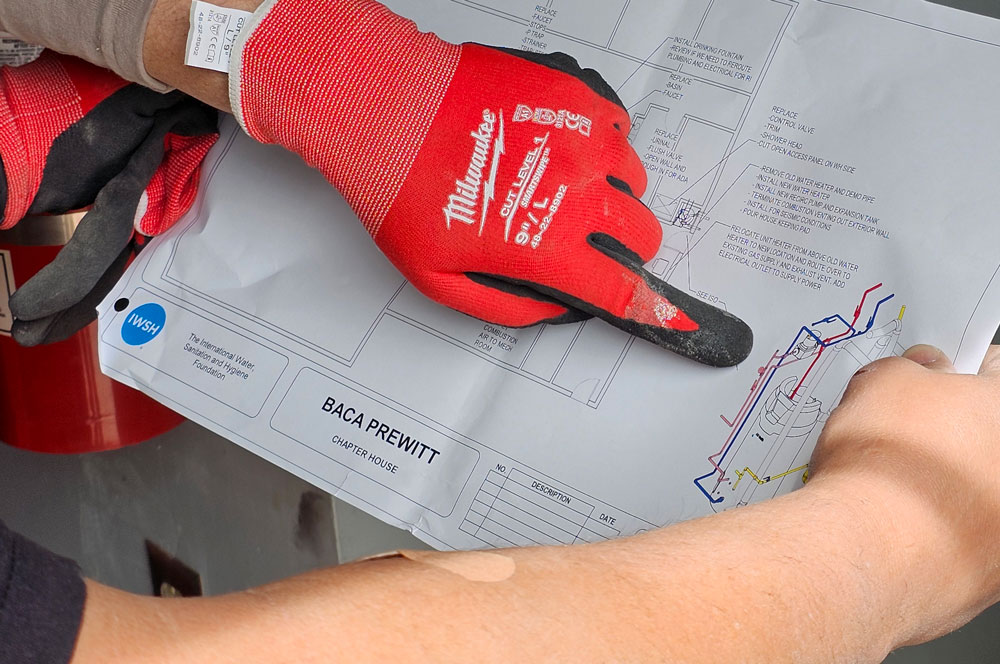
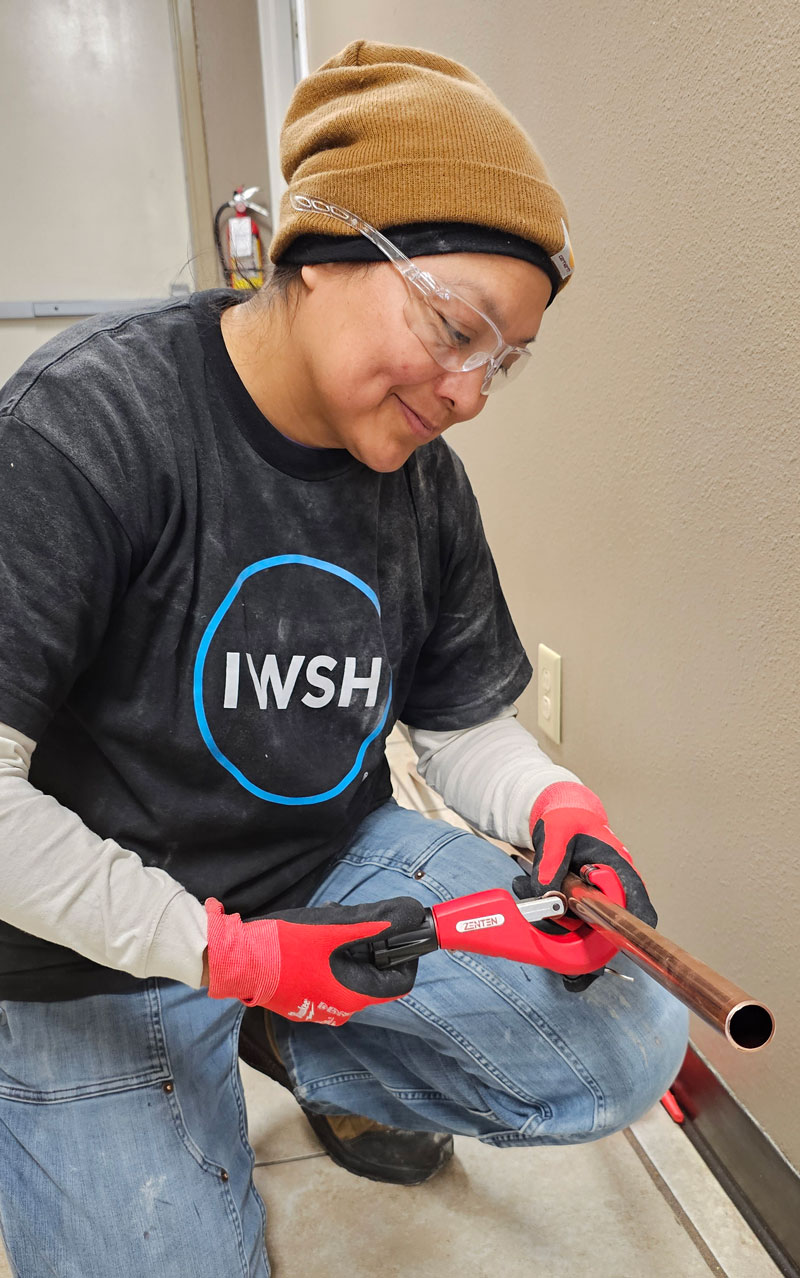
Scheuermann noted that geological conditions like shallow bedrock make traditional piping and septic systems nearly impossible to implement. “Bedrock is impervious. It doesn’t accept the drainage from a septic system, so we have to generally build up a mound,” he explained. “They need qualified professionals in order to do that. You need to really look at what your specific situation is, and that can change just within a couple of hundred yards.”
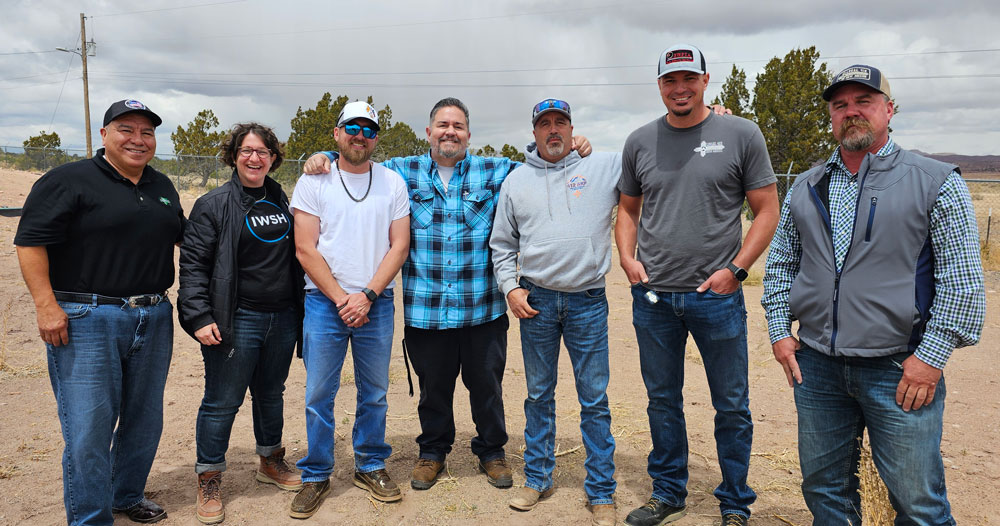
Visit from UA Local 412 Leadership (L to R) John Mata, Robyn Fischer, Andre’ Makarski, Adam Valdez, Antonio Montoya, Art Sparks, and Courtenay Eichhorst.
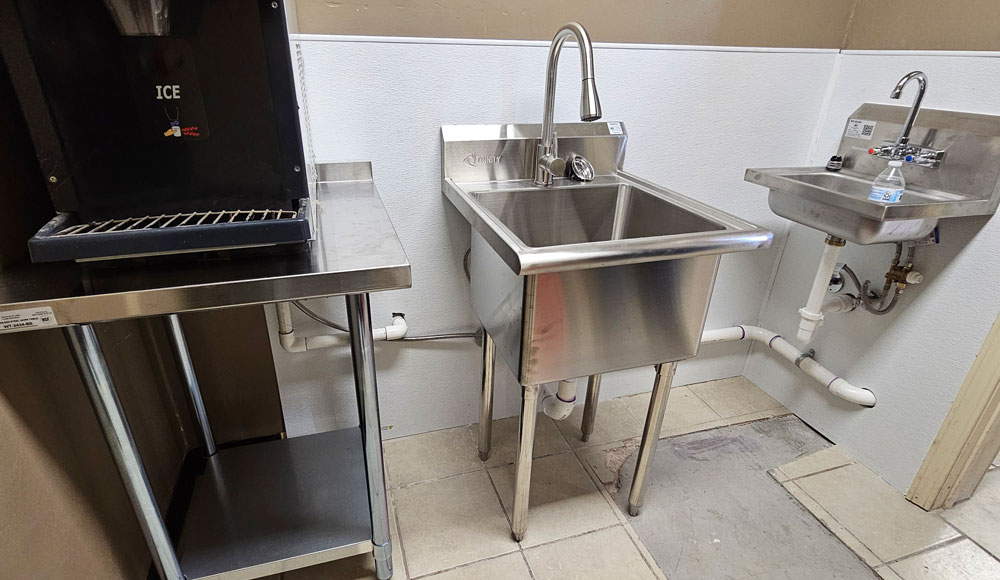

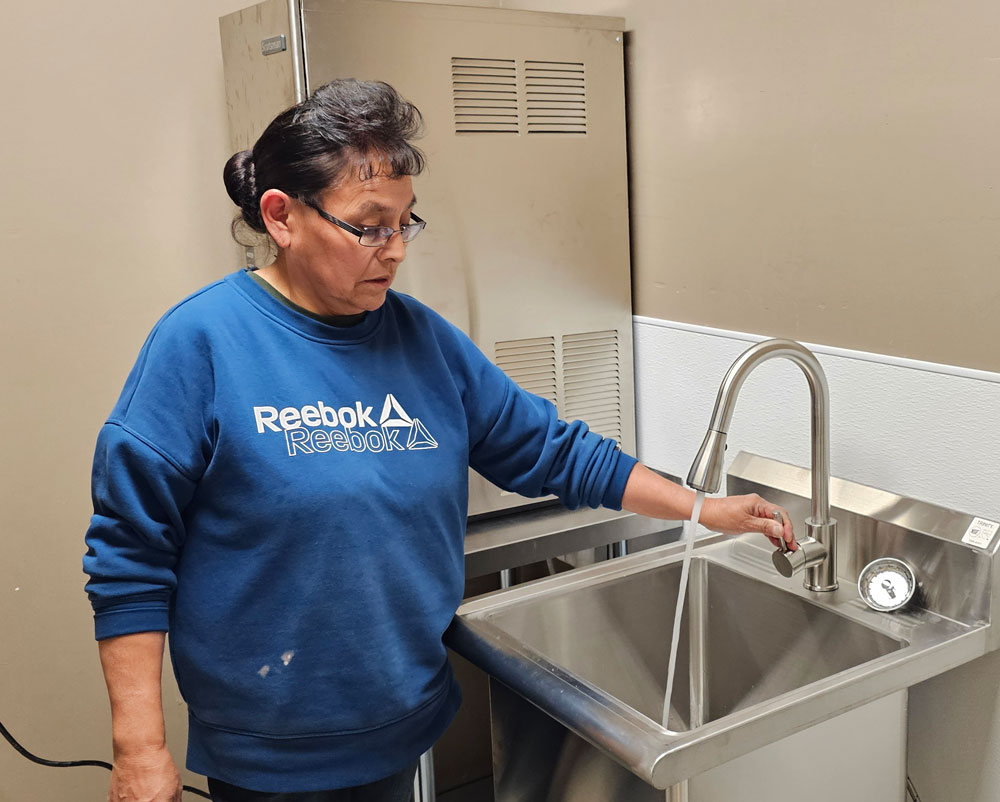
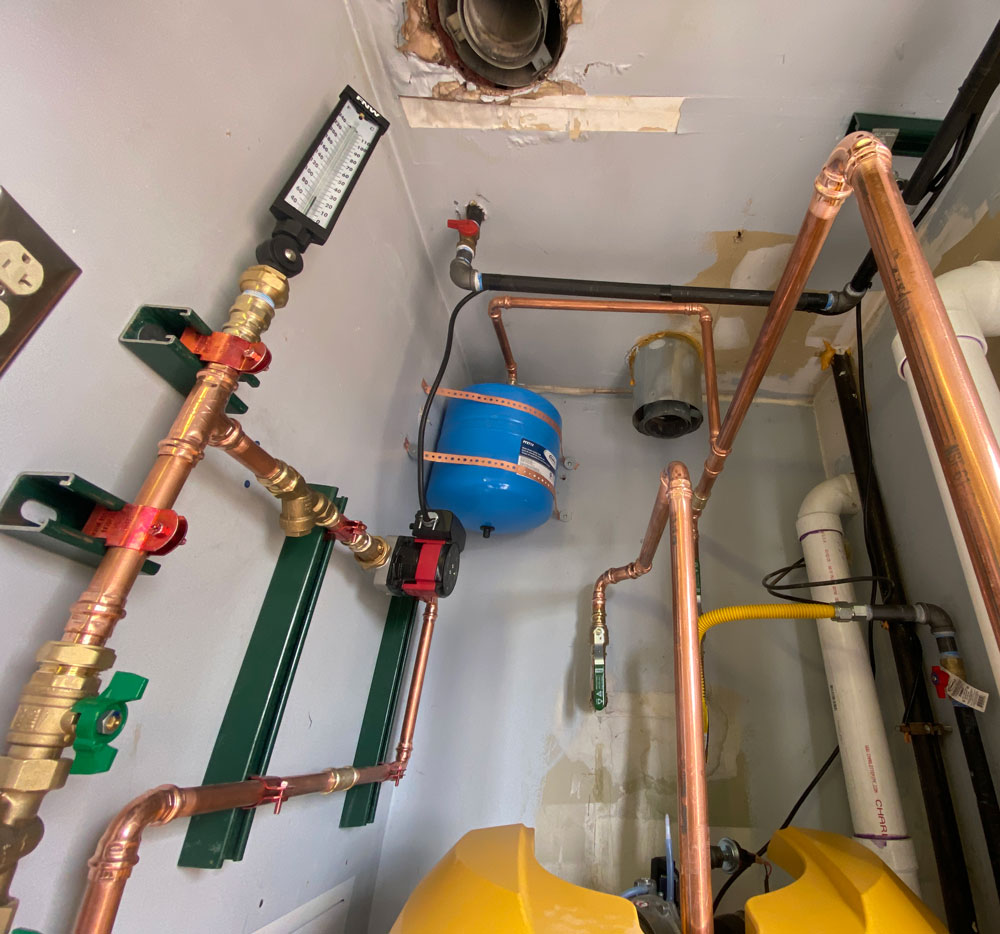
Despite these challenges, the success of the project in Baca-Prewitt offers a model for future efforts. Robyn Fischer, IWSH senior director for North America, expressed hope that the impact would expand. “Right now, we are operating within one chapter,” she said, “but we’d like to expand this to more chapters throughout the coming years.”
IWSH’s return to Baca-Prewitt marks more than just a continuation of earlier work — it represents a sustained commitment to providing safe, functional, and dignified water and sanitation access across Navajo Nation, one community at a time.
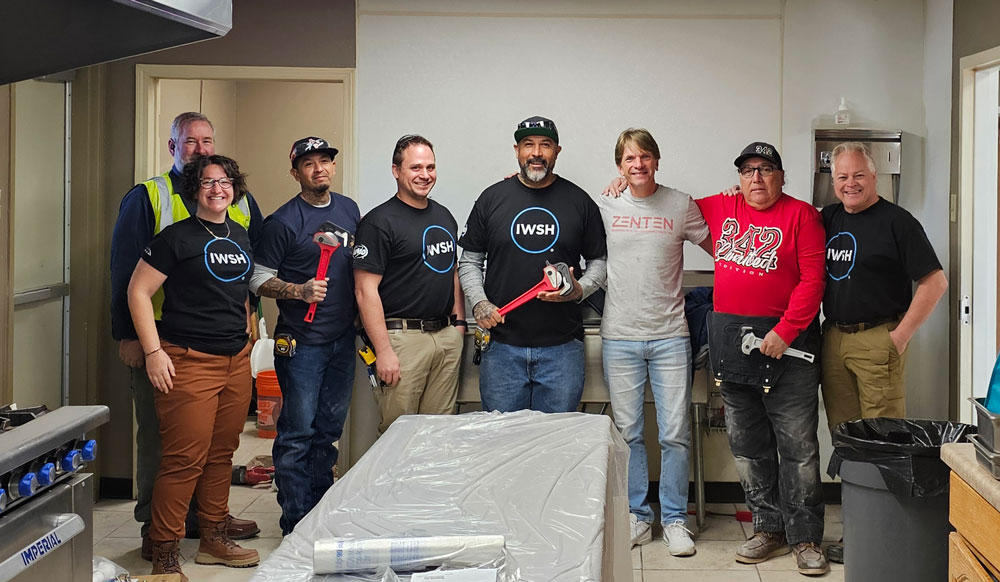
Week One CPC team (L to R front row) Robyn Fischer, Richard Martinez, Adam Koenigs, Iggy Contreras, Darren Chalkly (donor of ZENTEN hand tools), Jon Flint and Jed Scheuermann; (back row) Sam Woolsey.
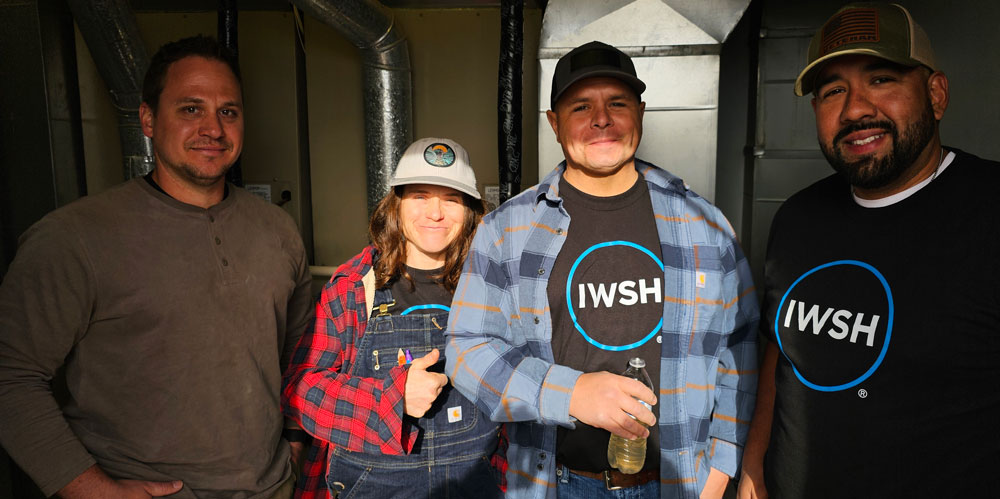
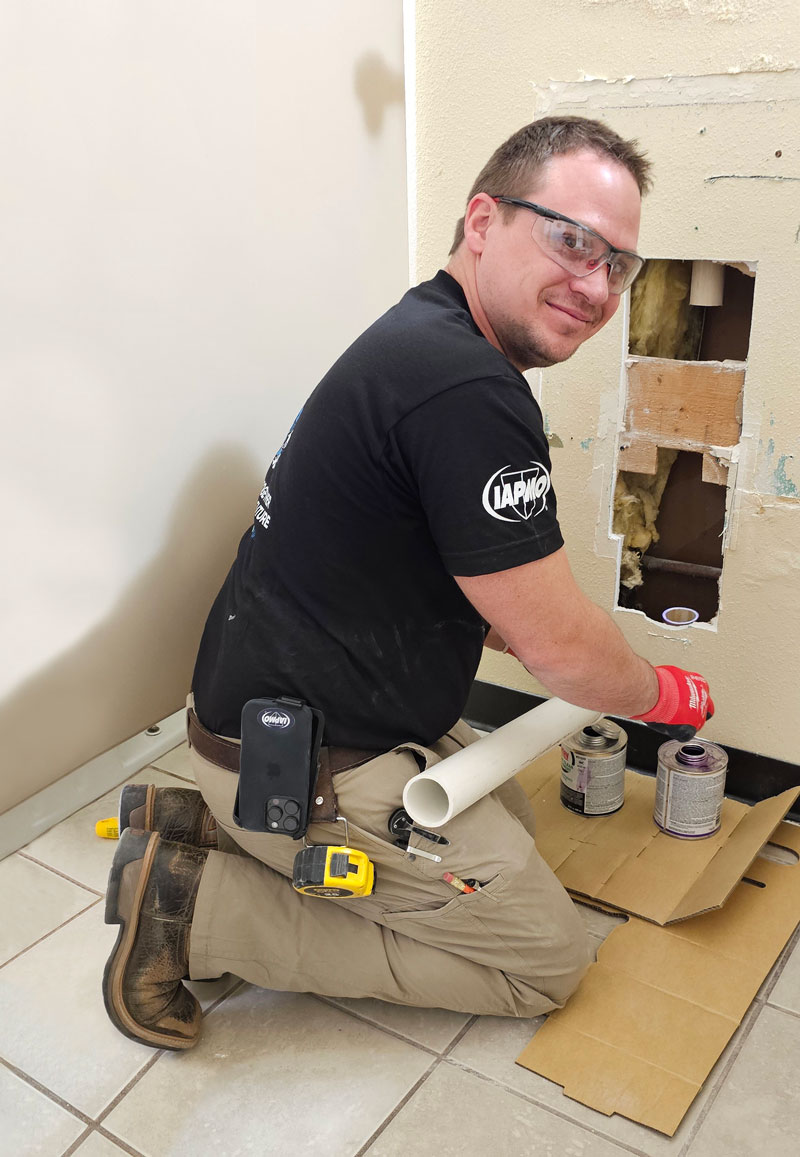
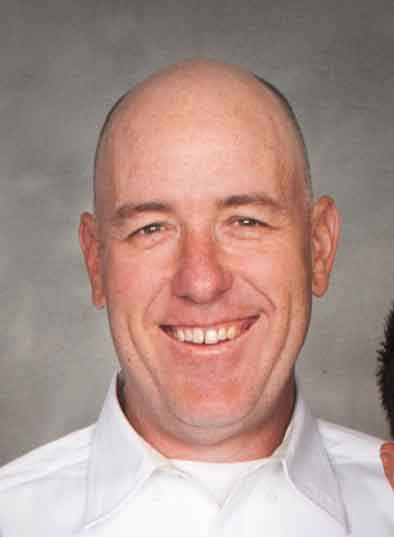
Geoff Bilau
Last modified: July 2, 2025
